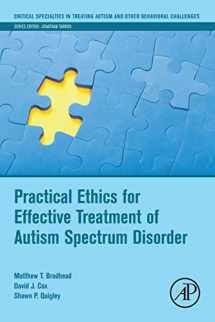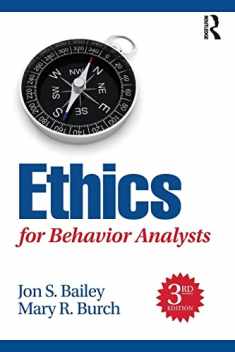
Practical Ethics for Effective Treatment of Autism Spectrum Disorder (Critical Specialties in Treating Autism and other Behavioral Challenges)
Book details
Summary
Description
Practical Ethics for Effective Treatment of Autism Spectrum Disorder is for behavior analysts working directly with, or supervising those who work with, individuals with autism. The book addresses important topics such as the principles and values that underlie the Behavior Analyst Certification Board’s ® Professional and Ethical Compliance Code for Behavior Analysts, and factors that affect ethical decision-making. In addition, the book addresses critical and under-discussed topics of: scope of competence; evidence-based practice in behavior analysis; how to collaborate with professionals within and outside one’s discipline; and how to design systems of ethical supervision and training customized to unique treatment settings. Across many of the topics, the authors also discuss errors students and professionals may make during analyses of ethical dilemmas and misapplications of ethical codes within their practice.


We would LOVE it if you could help us and other readers by reviewing the book
Book review





